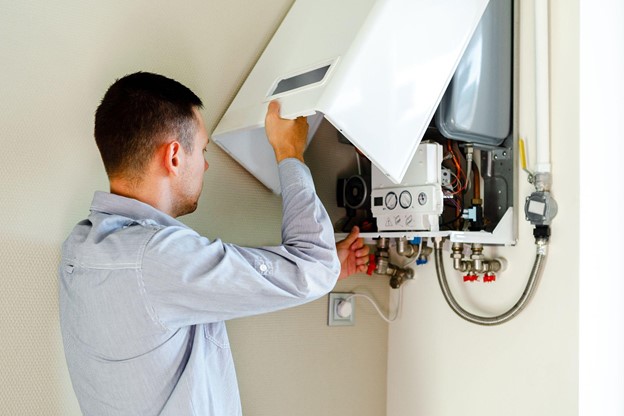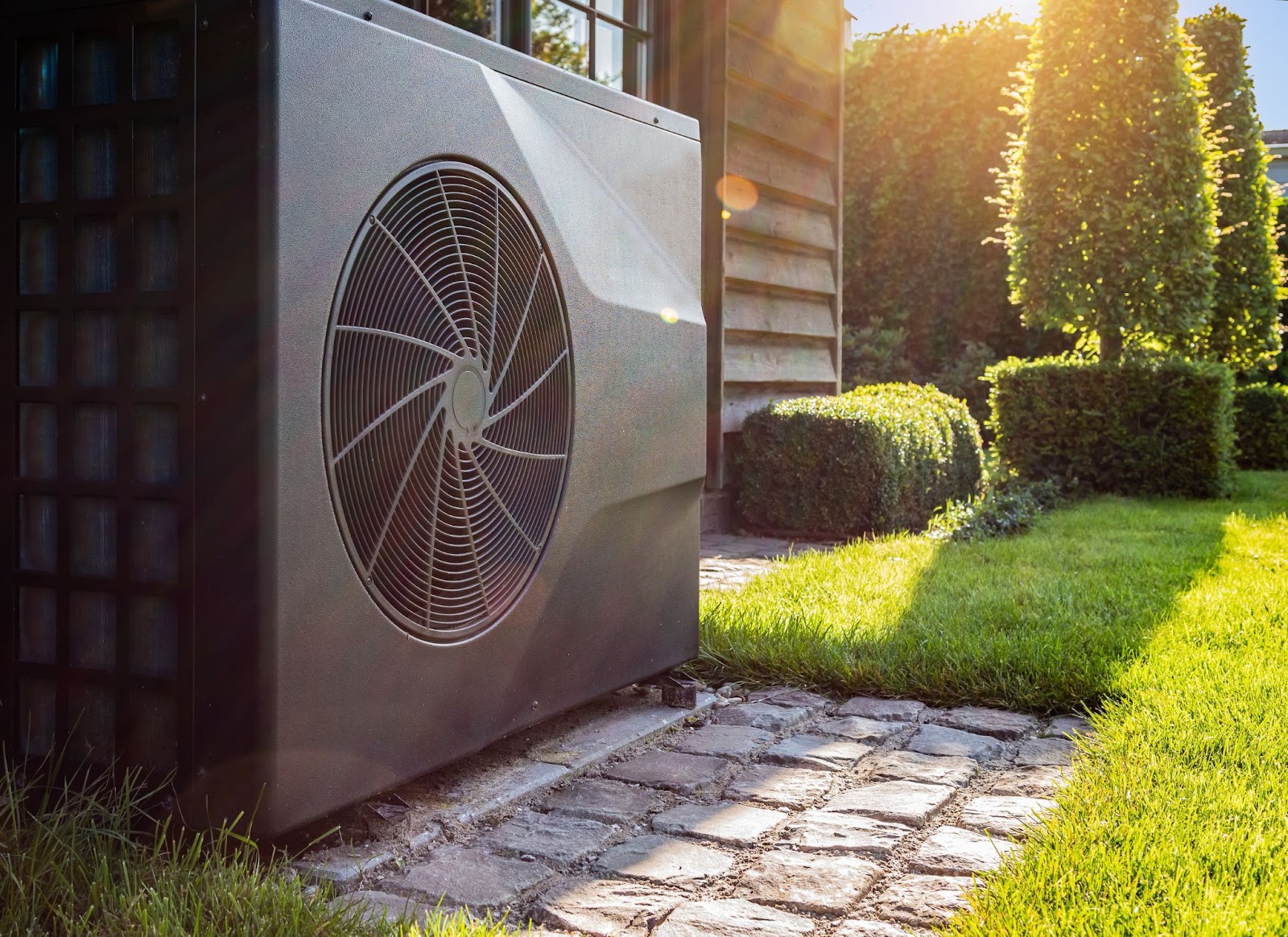It’s illegal to rent out a Property without a working boiler. However, many landlords don’t realise that they can be prosecuted for renting out such properties and that they could receive fines of up to £30,000. This is because the Gas Safety (Installation and Use) Regulations state that landlords must ensure that all gas appliances are safe and in proper working order at all times.
Why do we need a gas boiler ban?
Just a third of our homes had central heating in 1970 – the year the Glastonbury Festival was born, and the Nuclear Non-Proliferation Treaty came into effect. That number increased to 80% by the early 1990s.
We’ve become accustomed to cheap and convenient heat over the last few decades. As a result of heating, the UK emits almost a third of its greenhouse gas emissions, according to the Committee on Climate Change.
In the UK today, 95% of homes have central heating, and almost all of them use gas or oil-fired boilers.
As fossil fuels, gas and oil emit carbon dioxide (CO2) – a greenhouse gas that contributes to climate change. The majority of CO2 emissions are caused by fossil fuel combustion. Around 30% of greenhouse gas emissions in the UK are caused by heating. The majority of this is caused by heating our homes.
The use of gas boilers in new homes will be banned by 2025
As of 2025, all new homes will no longer have gas or oil boilers and will instead be heated using low-carbon alternatives. By 2050, the UK intends to achieve carbon neutrality.
Philip Hammond announced in the Spring Statement a recommendation of the Committee on Climate Change in their recently published report “UK housing: Fit for the Future?†that fossil fuel heating is replaced with renewable alternatives.
As it stands, the methods we currently use to heat our homes are unsustainable, contributing 14% to the UK’s overall emissions. We need to change quickly, and banning gas boilers will be a positive step in that direction.
To begin moving towards low-carbon heating, however, we don’t need to wait until 2025. Today, homeowners and businesses can use heat pumps, which are a proven, established technology.
The future is now
There are numerous benefits to installing an air source and ground source heat pump. The efficiency of heat pumps (providing approximately 3-4 kWh of heat energy for every 1 kWh of electrical input) and low emissions enable homeowners to save on energy bills without compromising on heat and hot water comfort.
Today, the United Kingdom has access to this technology. Thanks to government incentives such as the Renewable Heat Incentive, it has never been easier for British homeowners and businesses to switch to low-carbon heating.
Designing, installing, and maintaining heat pump systems requires experience and knowledge. Various properties, including domestic homes, social housing heating networks, commercial buildings, and agricultural companies, have been fitted with heat pumps by Thermal Earth.
Reducing the skills gap
A key aspect of the CCC’s report on the future of UK housing is the skills gap that exists for installing new technologies.
Centraheart understands how important it is to have knowledgeable and skilled installers fitting heat pumps. We aim to provide guidance, experience and support to current and future heat pump installers. Our goal is to ensure that the installation of renewable heating systems is a success in light of the growing demand for low-carbon heating.
The future of low-carbon heating
In the renewable energy industry, the announcement of the ban on gas boilers is significant. To create a carbon-neutral future, we hope to encourage people to look for alternative forms of heating, and that change can start now.
CentraHeat has installed more than 1,000 heat pumps UK-wide, and we have the technology and expertise to provide you with low-carbon heating today.
What will the domestic gas boiler ban in 2025 mean for me?
Under the government’s current plans, there’s a gas and oil boiler ban in newbuild homes only from 2025.
According to the National House-Building Council, Ministry of Housing, Communities & Local Government tells us there are about 25 million homes in the UK – and we build about 160,000 new ones each year. As such, it’s likely to be many years before a new built gas boiler ban alone has a big impact on greenhouse gases. And some environmental groups argue that the government needs to go further, much sooner.
Are my home’s gas boilers affected by the ban?
Don’t worry about getting rid of your oil or gas boiler. In 2025, gas and oil banners will be banned from new construction properties only. Gas boilers in existing homes will not be phased out.
Thus, more of us may ditch gas for alternative fuels if the government encourages us to do so. Our homes can be insulated, or low-carbon heating can be installed with grants or incentives.
Programs like the Renewable Heat Incentive are already doing this. It’s a government-funded program that offers homeowners a quarterly payment when they buy a renewable heating system, like a biomass boiler or air-to-water heat pump. It encourages the use of low-carbon heating, such as a hybrid air source heat pump instead of an oil boiler.
Besides central gas heating, what are the alternatives?
Gas and oil are not the only options for heating our homes, and natural resources have provided free heat for many years in some countries. For example, Iceland’s hot water springs are used to heat 9 out of 10 homes.
District heating systems
‘District heating’ has been a pioneering technology in Iceland. Through these heating systems, whole streets, developments, and even whole communities receive water heated by a central geothermal plant.
In recent years, this concept has been applied more widely throughout the world. Recovering the waste heat from factories and other industrial activities using low-carbon energy sources like biomass or heat pumps.
Usually, district heating is most suitable for campuses or densely populated areas. In other words, wherever there are a lot of people! Nevertheless, electric heating can provide a more flexible solution in other types of homes.
Electric heating
There are other electric alternatives to gas boilers, such as bar fires and portable heaters. Modern-day storage heaters and heat pumps can also provide hot water and underfloor heating.
Electric heaters and heat pumps work differently, so it’s useful to view them as separate groups: heaters and heat pumps:
A heater can be as simple as the electric fire or fan heater we are all familiar with or as complex as a storage heater. Also included in this category are direct electric underfloor heating and electric water heating through immersion heaters and electric boilers.
A heat pump works differently from a boiler. Heat is not generated, but it is simply moved! Basically, they pump heat from outside into your hot water or heating system, much like a refrigerator going backwards.
Heat pumps can be divided into two categories. An air-source heat pump (ASHP) extracts heat from the outside air, and a ground-source heat pump (GSHP) gets its heat from pipes embedded in the ground. Both use significantly less power.



